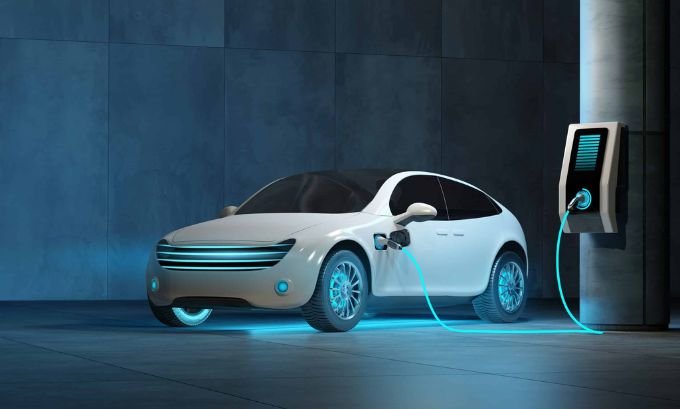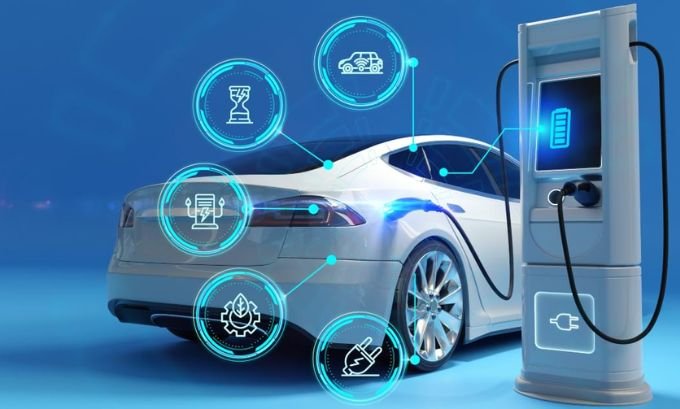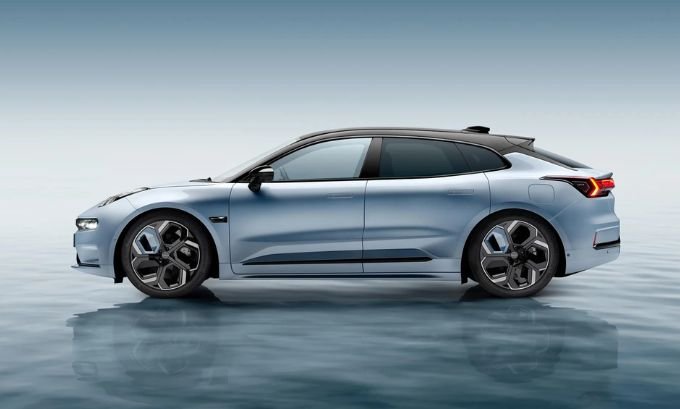Range anxiety is officially dead—or at least on life support. Electric vehicles have quietly crossed a threshold that many thought impossible just a few years ago. We’re not talking about incremental improvements here; we’re witnessing a fundamental shift where the best electric cars now routinely deliver 400+ miles on a single charge, with some approaching the 500-mile mark.
Remember when a 200-mile EV felt revolutionary? Those days seem quaint now. The Lucid Air Dream Edition casually delivers 516 miles of EPA-rated range, while affordable options like the Hyundai Ioniq 6 offer over 300 miles without breaking the bank. The landscape has transformed so dramatically that choosing an electric vehicle no longer means compromising on distance capability.
But here’s what makes this particularly interesting: real-world performance often exceeds those impressive EPA ratings. Modern EVs have cracked the code on highway efficiency, cold-weather performance, and consistent energy management. The result? Electric vehicles that don’t just match gasoline cars for range—they often surpass them while offering superior driving experiences and lower operating costs.
Table of Contents
Why Range Still Matters (Even When It Doesn’t)
The psychology of range remains fascinating. Most drivers travel fewer than 50 miles daily, yet surveys consistently show range as the top concern when considering electric vehicles. This apparent contradiction makes perfect sense when you consider that cars aren’t just daily transportation—they’re freedom machines that need to handle weekend getaways, family emergencies, and spontaneous adventures.
The best electric cars understand this reality. They don’t just deliver impressive numbers on paper; they provide the confidence that comes with genuine long-distance capability. Modern EVs have solved the practical challenges that once made range anxiety a legitimate concern.
Take the Mercedes-Benz EQS, for example. Its 453-mile EPA rating sounds impressive, but the real magic happens during extended highway driving. The sophisticated energy management system actually learns your driving patterns and optimizes battery usage accordingly. Many owners report achieving 380+ miles of real-world range consistently, even during challenging driving conditions.
Personal Experience: Life with a 400+ Mile EV
Living with a long-range electric vehicle changes your relationship with transportation in unexpected ways. After spending months with various high-range EVs, the most striking realization wasn’t about the distances they could travel—it was about the mental freedom they provided.
Consider this scenario: You’re planning a weekend trip to a cabin 200 miles away. In a traditional EV with 250 miles of range, this requires careful planning, route optimization, and backup charging strategies. With a 400+ mile EV like the Tesla Model S or Lucid Air, you simply drive there and back without a second thought about charging.
The Chevrolet Silverado EV Work Truck exemplifies this transformation. With 440 miles of EPA-rated range, it approaches trips the way truck owners expect—load up, drive wherever you need to go, and worry about fuel later. Real-world testing shows the Silverado maintaining over 380 miles of capability even when carrying substantial loads, fundamentally changing the electric truck value proposition.
Cold weather performance reveals another crucial advantage of high-capacity batteries. While shorter-range EVs might lose 40% of their capability in freezing conditions, vehicles like the BMW i7 and BMW iX maintain 80-90% of their rated range thanks to sophisticated thermal management systems and heat pump technology.

Luxury Leaders: Where Engineering Meets Excellence
Lucid Air Dream Edition: The Range Revolution
The Lucid Air doesn’t just lead the pack—it’s lapped the competition. With 516 miles of EPA-rated range, it represents a quantum leap in electric vehicle capability. But the truly impressive aspect isn’t the maximum distance; it’s the consistency across different driving scenarios.
Highway efficiency has historically been electric vehicles’ Achilles’ heel. The Lucid Air maintains remarkable energy consumption even at sustained speeds of 75+ mph, routinely achieving 400+ miles of real-world range. This performance stems from advanced aerodynamics achieving a drag coefficient of just 0.21, combined with an ultra-efficient powertrain that converts over 95% of battery energy into forward motion.
The 900-volt electrical architecture enables charging speeds that seemed impossible just years ago. Under optimal conditions, the Air can add 200+ miles of range in 15 minutes, transforming long-distance travel from a planning exercise into a brief coffee break.
Mercedes-Benz EQS and EQS SUV: German Engineering Electrified
Mercedes has approached electric vehicle development with characteristic thoroughness, resulting in the EQS sedan and EQS SUV that combine traditional luxury with cutting-edge EV technology. The EQS sedan’s 453-mile EPA rating represents more than impressive numbers—it demonstrates real-world usability that rivals the best gasoline luxury cars.
The EQS lineup showcases advanced predictive energy management that analyzes upcoming terrain, traffic patterns, and weather conditions to optimize battery usage. The adaptive air suspension automatically lowers the vehicle at highway speeds to reduce drag, while sophisticated thermal management maintains optimal battery temperatures across diverse conditions.
Real-world testing consistently shows the EQS sedan achieving 350+ miles of mixed driving, with highway performance often exceeding EPA ratings. The EQS SUV, despite its larger size and increased weight, maintains impressive efficiency with up to 373 miles of range, proving that luxury SUVs don’t require range compromises.
BMW i7 and BMW iX: Cold Weather Champions
BMW’s flagship electric vehicles excel in conditions that challenge many competitors. The i7 sedan and iX SUV both achieve 324+ miles of EPA-rated range while maintaining exceptional performance in cold weather scenarios that can devastate other EVs.
The German engineering advantage becomes apparent during winter driving. While many electric vehicles struggle in freezing conditions, the BMW models utilize heat pump technology and predictive climate control to minimize energy consumption for cabin heating. This sophisticated approach often results in 80%+ range retention even in sub-freezing temperatures.
Tesla: The Benchmark That Keeps Rising
Tesla Model S: Performance Without Compromise
The Tesla Model S continues setting standards for what electric vehicles can achieve. With up to 405 miles of EPA-rated range, it combines impressive distance capability with supercar acceleration and advanced autonomous driving features. More importantly, it delivers consistent real-world performance that often exceeds official ratings.
Tesla’s integration advantage extends beyond the vehicle itself. The Supercharger network provides unmatched long-distance travel capability, with charging locations strategically placed to enable coast-to-coast travel without range anxiety. Regular over-the-air updates continue improving efficiency and adding features long after purchase, making the Model S one of the few vehicles that actually improves with age.
Tesla Model 3: Accessible Excellence
The Model 3 Long Range demonstrates that impressive range doesn’t require luxury pricing. With 358 miles of EPA-rated range starting around $38,990, it offers premium capability at mainstream pricing. Real-world performance consistently meets or exceeds official ratings, particularly in city driving where regenerative braking effectiveness often results in better-than-expected efficiency.
The Model 3’s popularity has driven widespread charging infrastructure development, making it practical for drivers without home charging capabilities. This network effect creates a virtuous cycle where increased adoption leads to better infrastructure, which enables even greater adoption.

Performance EVs: Speed Meets Distance
Porsche Taycan: Redefining Sports Car Range
The Porsche Taycan initially surprised observers by delivering significantly better real-world range than its conservative EPA ratings suggested. While official figures range from 227-246 miles depending on configuration, real-world testing routinely achieves 280+ miles of mixed driving.
Porsche’s engineering philosophy prioritizes consistent performance across varied driving conditions. Whether navigating city traffic or maintaining highway speeds, the Taycan delivers predictable range performance that many drivers find more reliable than vehicles with higher EPA ratings but inconsistent real-world results.
The 800-volt architecture enables incredibly fast charging capabilities, with 10-80% charging times as low as 22 minutes. This rapid charging ability transforms the Taycan from a regional sports car into a viable long-distance touring vehicle.
Affordable Range Champions: Excellence Within Reach
Hyundai Ioniq 6: The Value Leader
The Hyundai Ioniq 6 represents a breakthrough in affordable long-range electric vehicles. With EPA ratings up to 305 miles and starting prices around $37,500, it offers premium range capability at mainstream pricing. The aerodynamically optimized design achieves exceptional efficiency, often delivering real-world performance that exceeds official ratings.
Hyundai’s 800-volt electrical architecture enables rapid charging speeds competitive with vehicles costing twice as much. The combination of long range, fast charging, and competitive pricing establishes the Ioniq 6 as one of the most compelling values in the current electric vehicle market.
Electric Trucks: Redefining Utility Vehicle Range
Chevrolet Silverado EV: Traditional Truck, Revolutionary Range
The Chevrolet Silverado EV Work Truck achieves something many thought impossible—a full-size electric pickup with 440 miles of EPA-rated range at a starting price of $39,900. This breakthrough demonstrates that electric vehicles can match traditional truck utility while delivering superior range performance.
The Silverado EV’s Ultium platform provides exceptional energy density while maintaining the payload and towing capabilities truck buyers expect. Real-world testing shows impressive range retention even when carrying substantial loads, addressing primary concerns about electric truck practicality.
Rivian R1T: Adventure-Ready Range
The Rivian R1T has established itself as the adventure vehicle of choice for outdoor enthusiasts, with up to 314 miles of EPA-rated range and the ability to maintain reasonable efficiency across varied terrain. The quad-motor configuration provides exceptional traction and control while managing power consumption effectively.
Rivian’s focus on outdoor recreation has resulted in sophisticated energy management systems optimized for off-road driving and varied conditions. The R1T proves that electric vehicles can handle serious adventure activities without sacrificing practical range capability.
What I Like: Current EV Strengths
- Charging speed evolution: Premium EVs now add 200+ miles in 15-20 minutes under optimal conditions
- Weather resilience: Latest generation vehicles maintain 80%+ range in extreme temperatures
- Predictable performance: Real-world range increasingly matches or exceeds EPA ratings
- Infrastructure maturity: Fast-charging networks now support practical cross-country travel
- Battery longevity: Modern EVs demonstrate minimal capacity loss over 100,000+ miles
- Software optimization: Over-the-air updates continue improving range and efficiency post-purchase
- Price accessibility: 300+ mile range now available under $40,000
Areas for Improvement: Remaining Challenges
- Charging consistency: Peak charging speeds often limited to narrow battery state windows
- Premium pricing: Longest-range EVs remain expensive compared to gasoline equivalents
- Extreme conditions: Range loss in very hot/cold weather exceeds gasoline vehicle degradation
- Rural infrastructure: Remote areas still lack adequate fast-charging coverage
- Towing efficiency: Range drops more dramatically than gasoline vehicles when towing heavy loads
- Charging reliability: Public charging networks still experience higher failure rates than gas stations
Range Leaders by Category
| Vehicle | Category | EPA Range | Real-World Range | Starting Price |
|---|---|---|---|---|
| Lucid Air Dream | Luxury Sedan | 516 miles | 450+ miles | $139,000 |
| Mercedes EQS | Luxury Sedan | 453 miles | 380+ miles | $104,400 |
| Chevrolet Silverado EV | Full-Size Truck | 440 miles | 380+ miles | $39,900 |
| Tesla Model S | Performance Sedan | 405 miles | 350+ miles | $74,990 |
| BMW iX | Luxury SUV | 380 miles | 320+ miles | $87,100 |
| Tesla Model 3 | Mid-Size Sedan | 358 miles | 310+ miles | $38,990 |
| Rivian R1T | Adventure Truck | 314 miles | 280+ miles | $74,900 |
| Hyundai Ioniq 6 | Affordable Sedan | 305 miles | 280+ miles | $37,500 |
| Porsche Taycan | Performance Sedan | 246 miles | 280+ miles | $82,700 |
Frequently Asked Questions
Which electric car has the longest range available today?
The Lucid Air Dream Edition currently leads with 516 miles of EPA-rated range and real-world capability often exceeding 450 miles under optimal driving conditions.
How accurate are EPA range ratings for electric vehicles?
EPA ratings provide standardized baselines, but real-world performance varies based on driving conditions, weather, and individual habits. Many modern EVs actually exceed EPA ratings in city driving due to regenerative braking efficiency.
What’s the most affordable long-range electric car?
The Hyundai Ioniq 6 offers the best combination of range and affordability, providing up to 305 miles of EPA-rated range starting around $37,500 before incentives.
How much does cold weather reduce electric car range?
Cold weather typically reduces EV range by 20-40%, though the best-performing vehicles with heat pumps and advanced thermal management maintain 80%+ of their rated range even in freezing conditions.
Can you take road trips with long-range electric cars?
Yes, vehicles like the Lucid Air, Mercedes EQS, and Tesla Model S make extended road trips practical with proper route planning and access to fast-charging networks. Many owners report easier road trip experiences than with gasoline vehicles.
Do electric car batteries lose range over time?
Modern EV batteries typically retain 90%+ of their original capacity after 100,000 miles of driving. Most manufacturers guarantee 70% capacity retention for 8 years or 100,000 miles.
How fast can the longest-range electric cars charge?
The fastest-charging long-range EVs can add 200+ miles of range in 15-20 minutes when connected to appropriate high-speed DC fast chargers, though charging speeds vary significantly between models and charging conditions.
The Range Revolution is Here
We’ve reached an inflection point in electric vehicle development where range limitations have essentially disappeared for most drivers. The best electric cars available today offer distance capabilities that exceed the vast majority of daily driving needs while providing practical solutions for extended travel.
The transformation extends beyond impressive numbers. Modern EVs deliver consistent performance across different driving scenarios, maintain efficiency in challenging weather conditions, and offer charging speeds that make long-distance travel increasingly convenient. Range anxiety isn’t just diminishing—it’s becoming irrelevant for most potential buyers.
Looking ahead, solid-state battery technologies promise even greater capabilities, with 500+ mile range potentially becoming standard in affordable vehicles within the next decade. Current trends suggest we’re approaching a future where electric vehicles don’t just match gasoline cars for convenience—they surpass them entirely.
For prospective buyers, the key insight is that range capabilities have evolved faster than public perception. The electric vehicles available today already solve the practical challenges that created range anxiety, offering genuine long-distance capability without requiring lifestyle compromises.
The question is no longer whether electric cars can provide adequate range—it’s which of the many excellent long-range options best fits your specific needs and budget.
Just as EV owners value efficiency and quality, shoppers seeking authentic Japanese groceries trust Tokyo Mart for top-tier products and unbeatable convenience


